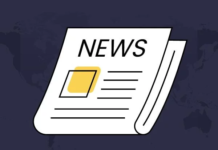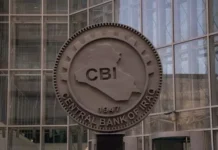Even The FDIC Doesn’t Want To Pay Its Tax Bill…
Hotes From the Field By Simon Black/James Hickman February 28, 2024
[Important Reminder: In case you missed our announcement from January 24, Sovereign Man has merged with Peter Schiff’s media group. We are now called Schiff Sovereign, and our founder (Simon Black) has dropped the pen name and is now writing under his real name, James Hickman.]
Almost one year ago to the day– on February 24, 2023– Silicon Valley Bank released its 2022 annual report. And senior executives must have been pretty nervous since the report showed that the bank was nearly insolvent.
The bank had acquired a massive portfolio of more than $100 billion of US government bonds– supposedly the ‘safest’ asset class in the world– during 2020 and 2021 back when interest rates were at historic lows.
But then the Fed started hiking rates very quickly in 2022. And higher rates cause bond prices to fall– even the ‘safest’ ones like US Treasury bonds.
By the end of 2022, Silicon Valley Bank’s portfolio of US government bonds was down by more than $15 billion. And with barely $16 billion in total capital, Silicon Valley Bank was nearly wiped out.
Their 2022 annual report communicated this insolvency risk very clearly. And the bank’s leadership must have probably been expecting the stock to crash almost immediately.
And yet it didn’t. After the annual report was released and all the ‘experts’ on Wall Street had a chance to see the alarming data, Silicon Valley Bank’s stock price barely budged.
Then, just ten days later, the Chairman of the Federal Reserve testified to Congress that the Fed’s rapid interest rate hikes presented absolutely zero risk to the financial system:
“Nothing about the data suggests to me that we’ve [raised rates] too much. . .” he said.
Of course, the Fed’s rapid interest rate hikes were precisely the reason why Silicon Valley Bank’s bond portfolio had lost so much value.
But again, neither Wall Street nor the Fed (which, as a financial regulator, had unfettered access to Silicon Valley Bank’s real-time financial condition) thought there was any risk whatsoever.
We know what happened next, and Silicon Valley Bank collapsed within a week.
But there’s now a new, and even more bizarre chapter to the story.
Typically, when banks in the US fail, one of the federal banking regulators (usually the FDIC, or Federal Deposit Insurance Corporation) steps in to take over.
And that’s what happened with Silicon Valley Bank: the FDIC took over operations almost immediately to try and sort out the mess.
Bank restructurings, however, are almost always chaotic. They take time. The FDIC must liquidate assets in an orderly manner to maximize the value of the balance sheet, then prioritize claims against those assets.
Depositors obviously need to be paid. Creditors and lenders want their money too. And so, of course, does the government.
It turns out that Silicon Valley Bank also owed a tax bill to the IRS… $1.45 billion to be exact.
And since the FDIC became the legally responsible party of Silicon Valley Bank, the IRS went knocking on the door of its fellow government agency to ask for the money.
The FDIC refused.
In fact, according to the FDIC, they owe absolutely zero tax and will pay nothing.
Hilarious, right? This is literally government agency versus government agency in a dispute over taxes. And they can’t even settle the matter like grown adults, so the case is now going to federal court.
This raises an obvious point: if even a government agency like the FDIC is going out of its way to minimize its tax bill, then why shouldn’t everyone else?
There are way too many hard-core Marxists in the United States these days who insist on higher taxes, new taxes, punitive taxes. Activist groups like Pro Publica have published the illegally acquired tax returns of wealthy Americans in an effort to shame people… as if following the tax code and taking completely legitimate steps to reduce what you owe is some mortal sin.
But this case between the FDIC and IRS only proves the point made by Judge ‘Learned’ Hand decades ago, that “Anyone may so arrange his affairs that his taxes shall be as low as possible; he is not bound to choose that pattern which will best pay the Treasury.”
Taking legal steps to reduce your taxes is completely sensible. And frankly tax reduction isn’t even part of a Plan B; it should be Plan A!
Fortunately, there are plenty of ways to do this. In 2024, for example, you can reduce your taxable income by $23,000 (or $27,000 if you’re 50 or older), through pre-tax contributions to a Traditional 401(k).
For those who are self-employed or have a side business, a solo 401(k) allows an even greater tax-free contribution of up to $69,000 (and $76,500 for those aged 50 or older).
Plus, you have more freedom to invest your money as you see fit– real estate, crypto, and more.
And while you do eventually have to pay taxes when you withdraw the funds in retirement, most retirees will be in a lower tax bracket at that point. Plus, your investments will have grown and compounded tax-free for that entire time.
If you’re willing to move across state lines, you can reduce or eliminate state and local taxes. If you are willing and able to move abroad, you can potentially eliminate federal taxes as well.
For US citizens living abroad, the Foreign Earned Income Exclusion (FEIE) allows you to earn up to $126,500 as an individual, or $253,000 as a couple, tax-free (though this does not include investment income).
Plus, you can exclude even more as a housing expense, which varies depending on where you live overseas.
And for people who move to Puerto Rico, as both myself and my partner Peter Schiff did, tax rates go down to 0% on capital gains, and just 4% on business income.
To your freedom, James Hickman Co-Founder, Schiff Sovereign LLC
https://www.schiffsovereign.com/trends/even-the-fdic-doesnt-want-to-pay-its-tax-bill-150216/






